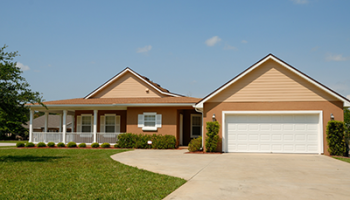Williamsport First Time Home Buyer Guide
Williamsport Home Buyer Guide For First Time Home Buyers
Buying a home can be a challenging but highly rewarding process. Buying is a great investment - you can live in the home, flip the home, or rent it out to tenants. If you are considering buying a home for the first time, you may have a lot of different questions about the home buying process. This is completely normal. We discussed with Williamsport mortgage broker D. Shane Whitteker twelve of the questions most frequently asked by first time home buyers (and their answers). Shane is the owner and chief broker at Principle Home Mortgage.
What's my housing budget?
Your housing budget will depend upon several different factors. First and foremost, you will want to take into account your household income. You will also want to make a list of your other bills and expenses like childcare, student loans, car payments, credit card bills, and medical bills. Get a house that fits reasonably into your budget with all of your other expenses considered. Remember – you don't want to make the mistake of buying more home than you can comfortably afford.
How much do I have to save for a down payment?
The down payment on your home will depend on multiple factors. First, take into account the cost of the homes themselves. The more expensive a home is, the more you will potentially need to save for the down payment.
Whitteker recommends taking the housing market into consideration when determining how much to put down.
“I would say having 5% to 8% of the purchase price saved is a good idea, especially with how competitive the market is currently,” Whitteker says. “You can purchase a home with less than this amount saved especially if you qualify for VA or USDA financing.”
How much will my home’s closing costs be?
Your closing costs will be at least a few thousand dollars. The more expensive a home is, the more expensive its closing costs will be. Be prepared to cover these fees out of pocket, or speak with your local mortgage broker about possibly rolling them into your mortgage.
Do I need to get a home inspector?
It is important to get a home inspector when you purchase a new home. Your inspector can make sure that the plumbing, framework, electrical work, and other parts of your home are fully operational and up to legal standards. The right inspector can save you thousands in the long run. Have a home inspected before you do a final signing on it and then follow up with a second inspection. Make sure to use a reputable, well reviewed home inspector, and supervise the inspection process to make sure that it is thorough and complete. This is not the time to cut corners - you do not want to rush into buying a home only to find devastating structural issues later after it is thoroughly inspected.
Whitteker says finding a great home inspector isn’t required, but it’s vital.
“This is not a requirement but is highly recommended,” Whitteker says. “Imagine spending hundreds of thousands of dollars on a home and finding out you have a mold problem and can’t live in the home. I had this happen to a client of mine. He actually did get a home inspection but the inspector didn’t see the mold as it was hidden behind a wall.”
The bottom line, Whitteker says, is don’t skimp on the home inspection.
“So the moral of the story is that you need a home inspection and you should try to find someone with good reviews and experience.”
How much should I save for moving expenses?
Budget for moving expenses in advance to figure out how much you should plan to spend. If you will be paying a moving company, look up the rates charged by the company and calculate how much will be spent on that. If you will be staying in a hotel or motel while moving, budget for those expenses as well. Be sure to add some extra cushioning to your financial plan so that you can cover food, gas, and other last-minute expenses while moving. Planning ahead is the key to knowing how much to save for moving expenses.
What's the neighborhood like? What are the schools like?
Use social media and neighborhood apps to find out more about the local area where your new home is located. You can also take a stroll or drive around the neighborhood. Research schools and schedule visits with them. You can also attend local events and meet new people who can tell you about the neighborhood and the schools in it. Be friendly with servers at restaurants and baristas at cafes. Ask them what they think of the local area.
Whitteker recommends doing your research before entering a new neighborhood or school district.
“Neighborhoods and schools can be quite different even if they are not that far apart geographically,” Whitteker says. “Do some research on this before buying. With Facebook and Google and other online options, research is pretty easy to do these days. Don’t make the mistake of not knowing your neighborhood before buying a home.”
How much mortgage can I afford?
Your mortgage should be proportionate to your household income. You should still be able to save money and comfortably cover all of your bills while paying a mortgage.
What do I need in order to qualify for a mortgage?
According to Whitteker, there are several things you’ll need to provide your local mortgage broker to qualify for a mortgage.
“You will need a two-year job history, although there are extenuating circumstances that may apply to this one but 2 years is generally needed. You can’t have any recent gaps in employment of over 3 months without being back to work for 6 months,” Whitteker says.
Whitteker recommends keeping a close eye on your credit score.
“Your credit score is a big factor,” Whitteker says. “Some banks will accept a lower credit score than other banks but your credit history will come up in reference to agency guidelines even if your score is high enough.”
Late payments can sink a credit report.
“As a guide try to make sure you don’t have any 30 day or more late payments on your credit in the past two years,” Whitteker says. “Debt to income is also a factor. If you are earning commission or some other form of inconsistent income you will need a two-year history so the lender can effectively calculate income.”
Should I consider an adjustable rate mortgage?
There are both fixed rate mortgages and adjustable rate mortgages available to home buyers. There are pros and cons to adjustable rate mortgages, so be sure to research those thoroughly. Weighing your options out is never a bad idea. Consider an adjustable rate mortgage but do not jump into one without doing the right research and speaking with your local mortgage broker.
What is PMI?
PMI is private mortgage insurance. This is a type of insurance that you may have to pay for if you have a mortgage with a less than 20% down payment.
What are the “hidden costs” of owning a home?
There are multiple hidden costs that can be associated with becoming a first time home buyer. HOAs or home owners associations charge additional fees that can add up quickly. There also may be repair costs associated with your new home. Be careful with "fixer upper" homes that have a lot of damage. It can be extremely expensive to pay for those repairs. Other costs associated with home ownership include utility bills, lawn maintenance, and home security.
Will I be “house poor” if I buy this home?
According to Whitteker, if you buy a home that is in your appropriate budget range, you will reduce the risk of becoming house poor.
“The budgeting process is incredibly important when buying a home,” Whitteker stresses. “You really need to crunch your numbers to make sure you can afford the house without creating a financially stressful situation. Owning a home is a great step in life but don’t make yourself miserable and anxious to accomplish this.”
How much will my property taxes cost?
Property taxes vary by location. Property tax appraisal is available in your local county or city.
To learn more, contact the Williamsport mortgage professionals at Principle Home Mortgage at (814) 308-0959 today!
VA Home Loans In Williamsport: A Primer
If you're looking for a Williamsport VA home loan, this article will give you a solid foundation. VA home loans - in Williamsport or anywhere else in Pennsylvania - are one of the best ways to obtain a home mortgage.
Step-By-Step Guide to Being a First Time Home Buyer
As a first time home buyer, you'll have a lot of questions. Check out our Williamsport First Time Home Buyer Guide for answers.
First Time Williamsport Home Buyer Mortgage Tips: The Inside Scoop
If you're considering buying a home in Williamsport - or anywhere else in Pennsylvania, you're guaranteed to learn something new in this informative guide.




